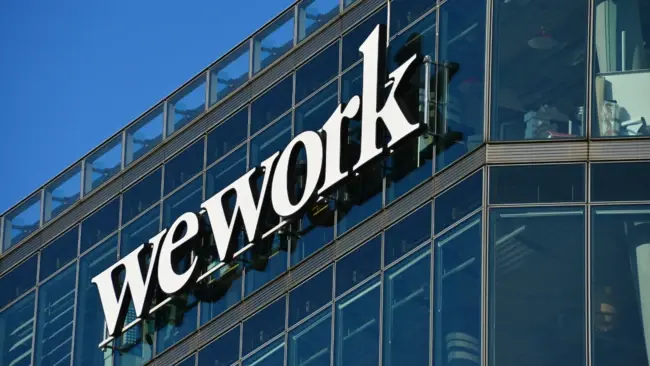
Legendary coworking space provider WeWork, which revolutionised the world of work and start-up culture over the last decade, has filed for bankruptcy in the US.
The company, which became synonymous with the venture capital boom of the late 2010s, peaked at a $47bn (£38bn) valuation.
The heavy downfall of WeWork has been well-documented in recent years. Hybrid working trends in the wake of the pandemic caused a vicious circle of expensive leases and client cancellations, while their high expenditure had been suggesting for years that the WeWork bubble was ready to burst.
Shares of WeWork have plummeted about 98.5% so far this year and this morning, the company filed Chapter 11 bankruptcy to a New Jersey federal court.
The move aims to give the company breathing room as they work with stakeholders to reduce the company’s debt.
What went wrong with WeWork?
WeWork peaked at a $47bn (£38bn) valuation, and had more than 700 locations in 39 countries as of this summer.
Rising concerns about its debts, losses and C-level management caused WeWork’s attempt to sell shares on the stock market in 2019 to collapse. A week later, its founder Adam Neumann stepped down as CEO.
And just a few months later, the pandemic hit. Not only were employers having to pull out of their leases with WeWork, but a lasting remote work revolution had been sparked.
WeWork lost more than $1bn in the start of 2023 and was becoming increasingly more weighed down by operational expenses.
Last month, as discussions with landlords and financiers intensified, WeWork told investors it was not making payments on its loans.
What does this mean for the WeWork sites in the UK?
WeWork has not confirmed how many sites would close in the UK, though a swift move to close “unprofitable sites” is now underway.
The company will be now looking to re-negotiate many of its leases in the UK and across the globe. In a statement to the BBC, WeWork said it was “fully committed” to the UK and Ireland.












